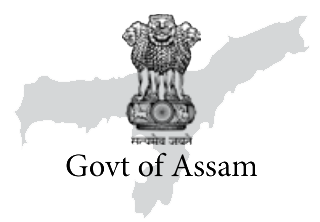Some 380 km north east of Assam’s capital city of Guwahati is North Lakhimpur town, the headquarter of Lakhimpur district in the State. The first impression that a visitor will gather of the town is that it is clean, sans any garbage, dirt, filth on the roadside.
Today, the town or rather the North Lakhimpur Municipal Board (NLMB) has become a talked about subject of garbage treatment leaving many resource-rich towns far behind.
NLMB’s door-to-door garbage collection became an instant hit with households and commercial establishments cooperating in the process. “The idea was basic: How to keep Lakhimpur clean?” said Casio Karan Pegu, Executive Officer of NLMB, while talking to Asom Barta.
The town with a population of about 80,000 has 21 municipal wards.

“We have been seeing a clean Lakhimpur since the last two years. The Board has also trained residents on making vermicompost from organic waste materials,” said Rina Barua (50) of Ward No. 1, seconded by Marzina Hussain (35) of the same ward.
The NLMB has made Ward No. 1 as a model ward for door-to-door collection of waste. In the model ward, blue and green dustbins have been distributed for segregation. College students have been trained in segregating non-biodegradable and biodegradable waste and pressed into an awareness drive.
“We have eight official vans to collect waste, garbage from commercial areas. We have taken some other vans from private parties on rent to collect garbage from residential areas. Initially, people were not very cooperative. But all that has changed. Commercial areas contribute more garbage than households. People are now aware about solid waste and organic waste,” Manika Kalita, City Project manager, Swachh Bharat Mission (Urban), told this reporter.
What the NLMB has done is to set an example in disposing of legacy garbage of the town area by implementing the project called ‘Rehabilitation of Legacy Waste and Regular Generating Waste in North Lakhimpur Municipal Board’. The Board has managed to secure 16 bighas of land from the dumping ground by implementing this project. (See photo)
It is this project that led to the Assam Government conferring Karmashree award on Lakhimpur District Commissioner Sumit Sattawan and his colleague Casio Karan Pegu.
The town generates between 36 to 42 tonnes of municipal solid waste per day. In 1982-83, NLMB started depositing garbage in Pub-Chandmari, on a large plot of land adjacent to the Sumdiri River, in the heart of North Lakhimpur town.
“The garbage dumping had a legacy waste of around 79,000 metric tonnes (MT) accumulated over 40 years. This was not a designated dumping ground. In the process, the river also got polluted,” Pegu told this newsletter.
In 2021, MLA Manab Deka and Sattawan initiated the process of cleaning this legacy waste. In nine months leading up to March 2023, the legacy waste was cleared, almost signalling a rebirth of a place, at a cost of ₹ 2.97 cr.

The organic waste generated from the final treatment of the legacy waste is sold to farmers as fertiliser while the solid waste (Refuse-Derived Fuel) is transported to a cement manufacturing plant in Meghalaya. This action has also led the administration to believe that the river will be rejuvenated in the days to come.
Vice Chairman of NLMB, Pranjal Dutta said that the NLMB will develop this prime land in the town for recreational activities, besides a football stadium.
With its action, the Board has managed to win over the locals in a big way.
“Look where we are today. From a garbage dumping ground and a den of vices, we are thinking of a site for cultural activities,” said Hasmat Ali (77), a resident of Ward No. 14 of Pub Chandmari.
The district administration has also chalked out a detailed strategy for the solution of the garbage – waste disposal problem. The DC told this newsletter that a four bigha plot in Japisajia has been identified for a solid waste management plant with all relevant facilities. “We plan to set up the plant there where all wastes can be processed together thereby eliminating the need to pile up legacy waste again. Besides, the revenue we generate will be used to develop the town,” he said.












